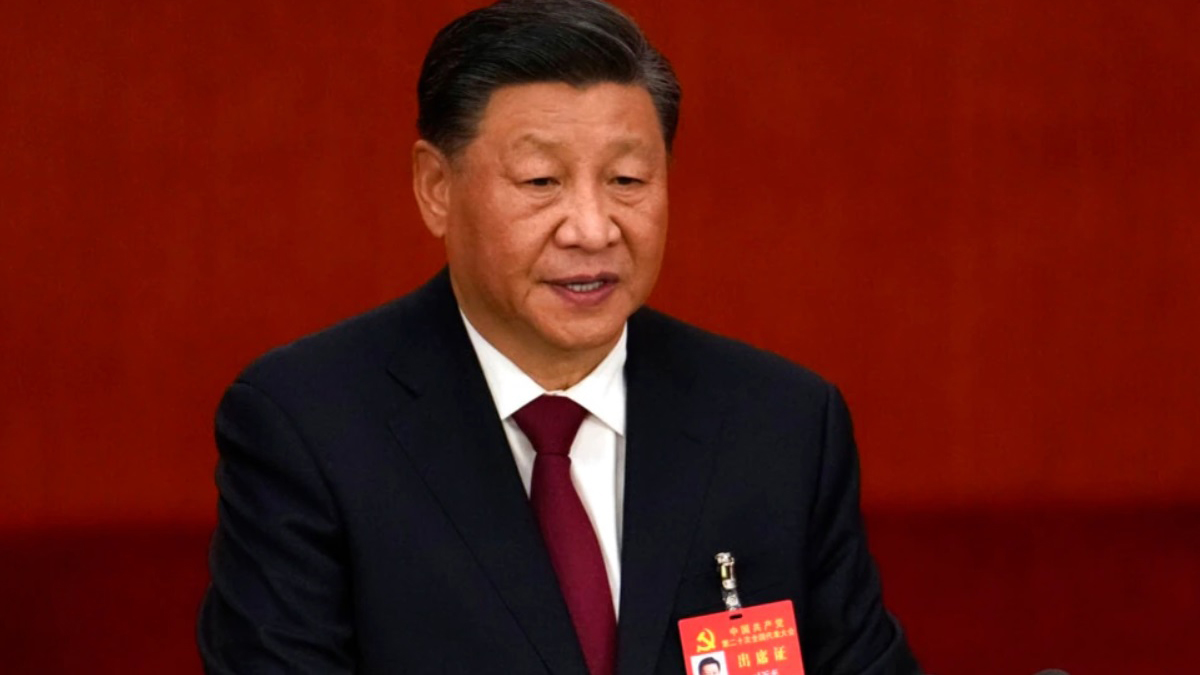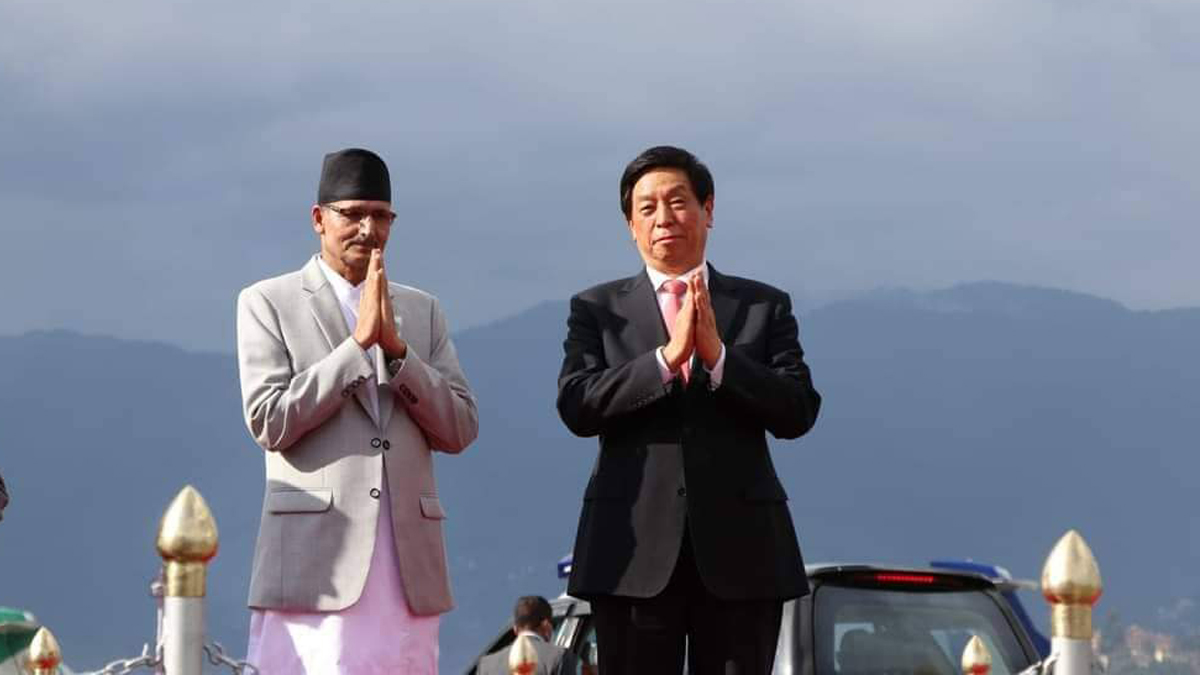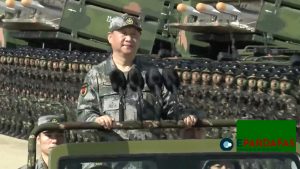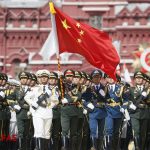
The task before new Nepal government: Balancing ties with India and China simultaneously
The Nepalese general elections threw a hung Parliament. While the Nepali Congress, led by Sher Bahadur Deuba declared the largest party with 89 seats, Prachanda’s Communist Party of Nepal (Maoist Centre) or CPN – MC won 38 seats whereas Oli’s Communist Party of Nepal – Unified Marxist Leninist (CPN – UML) secured 78 seats in the elections. Due to negotiations not working out between Deuba and Prachanda, Prachanda and Oli decided to form the government on a rotation basis with the first of the term being led by Prachanda.
There is a power-sharing agreement between Prachanda and Oli where both will hold the Prime Ministerial position in succession for half of the government’s term. Given that both the leaders do not share a cordial relationship, this government is being seen as an opportunistic coalition of various parties with the singular aim of capturing power. However, both leaders are viewed as pro-China which may create some challenges for India.

When Prachanda held the power last time, he showed more inclination towards China such as by breaking the convention and making his first visit to China instead of India as has traditionally been the norm in Nepal’s power circles. With KP Sharma Oli assuming charge of the PM of Nepal in 2018, some sort of tension between India and Nepal relations started brewing. The Oli government showed a clear inclination towards China and didn’t shy away from raking up issues ranging from territorial disputes in Limpiyadhura, Kalapani and Lipulekh to questioning the birthplace of Lord Ram. The erstwhile PM even went on blaming India for the spread of Coronavirus in Nepal terming it the “Indian virus”…hilarious!
The logic of geopolitics suggests that Nepal must balance its ties with both India and China. It is already witnessing the geopolitical and geo-economic power play on its territory between the two neighbouring power giants. The task of the new government is therefore cut out.
It becomes even more imperative for the new government because the economic situation in Nepal is not very conducive. The inflation is over 8 per cent which is the highest in the last six years. Unemployment is also touching new highs. There is an increased dependence on imported goods but the foreign exchange reserves are shrinking. The nation was severely affected by the impact of COVID-19 and has not fully recovered yet. The immediate focus of the government is therefore on attracting investments and businesses as well as boosting the production of goods and services.
India is Nepal’s largest trading partner and has poured billions of dollars in aid and investment. China too has upped the game and been investing heavily on Nepal’s infrastructure development such as the Trans-Himalayan Tibet Nepal railway under its flagship Belt and Road Initiative (BRI) having ulterior motives.
The Sino-India competition in Nepal is quite visible, however, both countries have different approaches in their relationship with Nepal. Since 2017, China’s intervention in Nepal’s internal affairs has been growing and becoming increasingly direct. In 2019, the relations between the two countries have been upgraded to a ‘strategic partnership’ under which major economic packages were offered by China, which has been viewed by the Nepalese community as a ‘strategic charity’ by China. Under President Xi Jinping, Chinese policy has been reoriented towards bringing Nepal under its strategic control. Nepal is now being looked at as China’s gateway to South Asia and an important instrument of its geoeconomic and geostrategic interests. India’s rising economic and military power, along with USA’s increasing intervention in the region has been aggravating Chinese ‘strategic anxiety.’
Contrary to China’s approach and despite the immense strategic importance Nepal holds in India’s geopolitical and security calculus, India never viewed its relations with Nepal through such a narrow lens. Rather, India’s involvement in Nepal has been informed by its principle of ‘Vasudhaiva Kutumbakam’ and the policy of ‘Neighbourhood First.’ In this regard, India’s main focus has been to boost Nepal’s development through aid and grants for infrastructure development7 , fostering cultural linkages and improvement of human development indicators, and always supportive to Nepal during adversities such as by donating USD one billion and other non-monetary reliefs for 2015 earthquake and many more.
Despite the current Prime Minister and the upcoming Prime Minister’s pro-China stance, the Nepal government will have to tread carefully and perform a balancing act between the two countries. India and Nepal share strong religious, cultural, economic and political ties that go back centuries. The two countries not only share open borders but there has always been unhindered movement between peoples of the two countries who have forged relations through marriage and familial bonds. This fact cannot be undermined by whoever holds the power in Nepal.
The statement by Indian PM Narendra Modi that India-Nepal bilateral relations are “as stable as the Himalayas” showed that the past setbacks in ties between the two countries have now been overcome to a great extent. And now, with the conclusion of the recent general elections in Nepal and Pushpa Kumar Dahal “Prachanda” sworn in as the new PM of Nepal on December 25, 2022, a new chapter of India – Nepal relations could be open which can bolster the political, economic and cultural ties between the two neighbours. The Indian PM Narendra Modi was amongst the first to congratulate Pushpa Kumar Dahal for forming the government and expressed friendly relations between the two countries. Pointing to the natural affinity between the two countries with uniquely strong bilateral relations, both sides expressed excitement about working together.
The statements coming from the political leadership of Nepal too hint towards the country following a balanced approach towards both its neighbours. Prachanda emphasised that the new government will follow ‘balanced and trustworthy’ ties with India without any major shift approach towards either of the two countries. In the same vein, Deputy Prime Minister Narayan Kaji Shreshtha reiterated that “We’ll maintain relationships of equi-proximity with both our neighbours”. Oli’s party CPN-UML also sought to dispel this perception of Oli valuing China ties more than Nepal’s relationship with India. The voices emphasising the balanced approach towards both India and China now need to emulate these in their policies and actions.















Comments